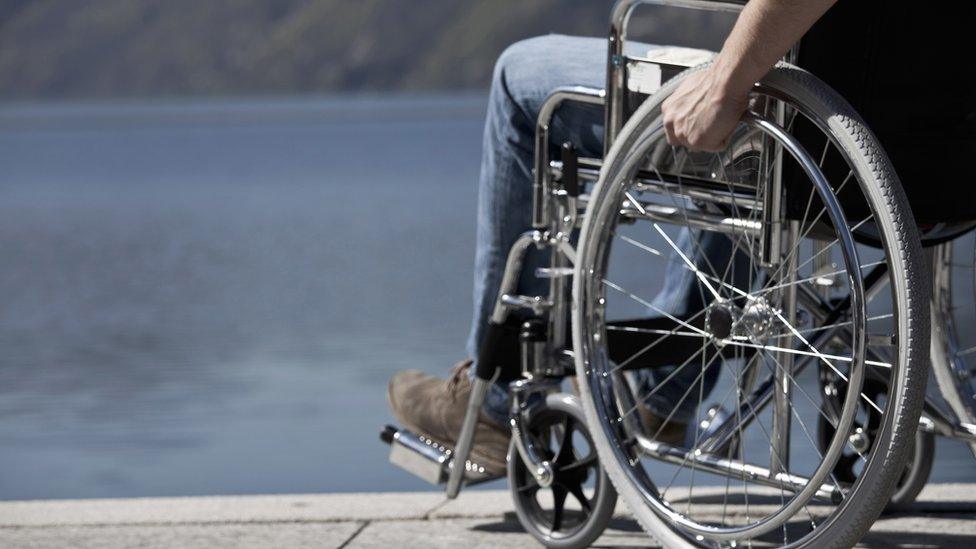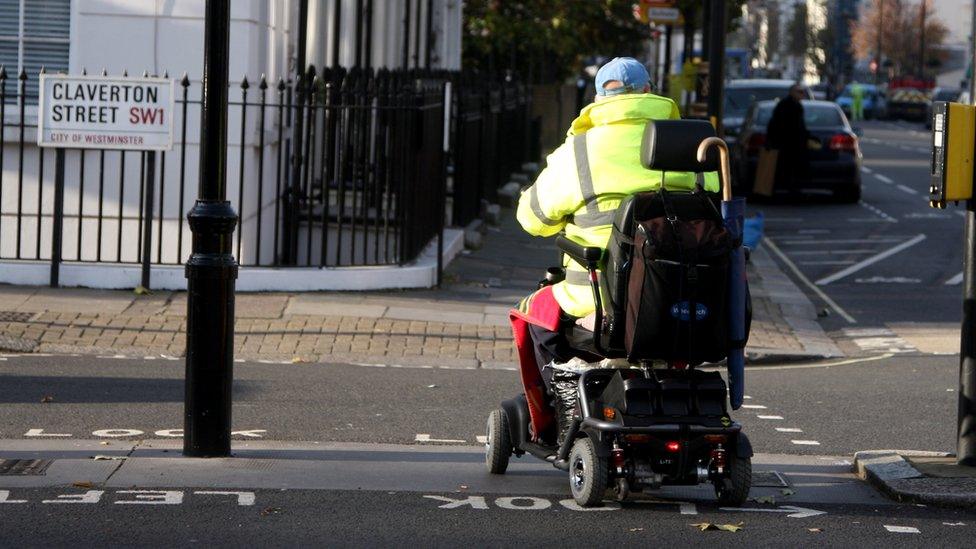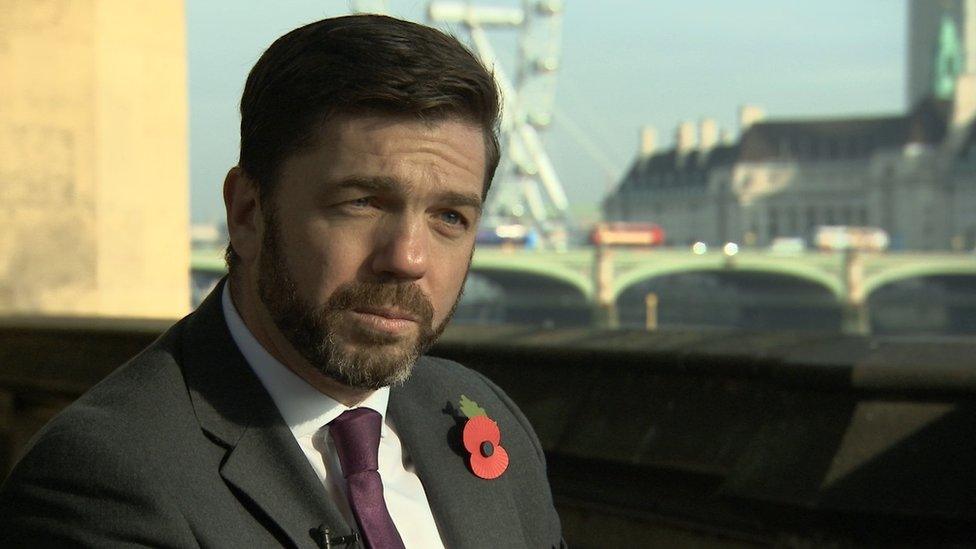Disability benefit changes criticised
- Published

Opposition parties have criticised moves to cut £3.7bn from the benefits bill by reducing the number of people eligible for disability benefit.
Labour said 160,000 people would lose out as a result of changes to Personal Independence Payments (PIPs).
The disability minister said new rules to clarify eligibility criteria for payments would ensure those most in need received maximum support.
The action follows two court judgements on how benefits claims are scored.
Labour said the government was not listening to criticism of how payments are assessed.
The Liberal Democrats said the government was using court losses "as an excuse to severely restrict disability benefits".
Disability rights campaigners said the changes were one of a number of cuts and changes faced by disabled people and those in ill health.
Travel support
Two tribunal rulings came in late 2016. One found someone who needed support at home to take medication or monitor a health condition like diabetes would score the same on the benefits criteria as people who needed help with a therapy such as kidney dialysis.
A second ruling said people who struggled to travel independently because of conditions such as anxiety scored the same as someone who was, for example, blind.
The government said the combined effects of the rulings would have added £3.7bn to the benefits bill by 2023.
The benefit payments are aimed at helping people cope with the extra costs of living with ill health or disability and are made according to the points a person scores in an assessment of their needs.
The replacement of Disability Living Allowance (DLA), which was partly self-assessed, with PIPs, where eligibility is tested by a company, has been controversial.
Eligibility for PIPs is reviewed regularly and the qualifying criteria are also stricter.
Mental health
In a written statement to the House of Commons on Thursday, external, Minister for Disabled People, Health and Work Penny Mordaunt said the government monitored how effective the payment was in supporting those facing the greatest barriers to leading independent lives.
She said that PIPs were designed to give "non-physical conditions... the same recognition as physical ones".
But she added: "Now, over two thirds of PIP claimants with mental health conditions get the higher Daily Living award, worth £82.30 per week, compared to 22% under DLA."
She said amendments to the criteria would "provide greater clarity", saying: "This will not result in any claimants seeing a reduction in the amount of PIP previously awarded by DWP (the Department of Work and Pensions)."
But Labour's shadow work and pensions secretary, Debbie Abrahams, said: "Instead of listening to the court's criticisms of Personal Independence Payment assessments and correcting these injustices, the government has instead decided to undermine the legal basis of the rulings."
It was an "unprecedented attempt" to subvert a tribunal judgement, she said.
'Escalating unfairness'
She said Labour would fight changes to "strip" entitlements from more than 160,000 disabled people - describing them as a "step too far, even for this Tory government".
A Lib Dem work and pensions spokeswoman said it was "utterly outrageous" the government was using the ruling to "make matters worse" for disabled people.
"What makes things even worse is that they have sneaked this announcement out under the cover of [Thursday's] by-elections," she said.
Campaigners said the government should instead embrace the tribunal's findings.
Philip Connolly from Disability Rights UK said the changes showed "escalating levels of unfairness" in the government's approach to a benefit it had created.
People with "very serious conditions" including dementia, learning difficulties and diabetes would be hit, he said.
This change was one of several benefit cuts disabled people faced, he said.
Campaigners are due to stage a protest in Westminster on Wednesday about a £29-a-week cut to employment support payments, external.
A DWP spokeswoman said the government was "committed to ensuring our welfare system is a strong safety net for those who need it.
"That's why we spend around £50bn a year to support people with disabilities and health conditions."
- Published21 March 2016

- Published8 November 2016

- Published21 March 2016